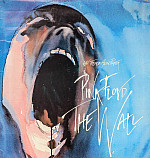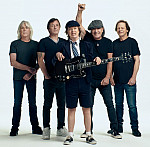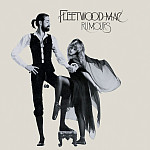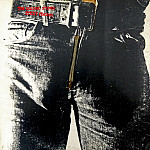Music History Events: Band Dynamics
 September 17, 1982 Pink Floyd's seminal double album The Wall makes it to the big screen as a feature-length musical. Few expected the sprawling concept album to be turned into a feature film, but the band's celluloid collaboration with director Alan Parker and animator Gerald Scarfe becomes a surprise box office hit and a cult classic.More
September 17, 1982 Pink Floyd's seminal double album The Wall makes it to the big screen as a feature-length musical. Few expected the sprawling concept album to be turned into a feature film, but the band's celluloid collaboration with director Alan Parker and animator Gerald Scarfe becomes a surprise box office hit and a cult classic.More
December 4, 1980 Led Zeppelin make it official: they will not continue after the death of their drummer, John Bonham. They never fully re-form, but do play some shows with Jason Bonham filling in for his father.
April 29, 1980 Black Sabbath launch their first tour with Ronnie James Dio as lead vocalist, replacing Ozzy Osbourne.
April 6, 1980 Andrew Wood forms the group Malfunkshun in Seattle, Washington, marking what some consider the beginning of grunge. The music of Malfunkshun makes an impact on Wood's roommate Chris Cornell, who forms Soundgarden. Wood moves on to Mother Love Bone, and after he dies of a heart attack in 1990, that group adds Eddie Vedder and becomes Pearl Jam.
 March 29, 1980 Brian Johnson of the band Geordie gets a new, slightly more high-profile gig: replacing the deceased Bon Scott in AC/DC. Johnson's first album with the band is Back In Black, which becomes the second-best selling album worldwide behind Thriller.More
March 29, 1980 Brian Johnson of the band Geordie gets a new, slightly more high-profile gig: replacing the deceased Bon Scott in AC/DC. Johnson's first album with the band is Back In Black, which becomes the second-best selling album worldwide behind Thriller.More
January 27, 1980 At the Gaumont theater in Southampton, England, AC/DC play their last show with Bon Scott. The electrifying frontman dies on February 19 after a night of excessive drinking.
July 28, 1979 After a show in Cleveland, Joe Perry quits Aerosmith when he gets in screaming match with Steven Tyler. He is replaced by Jim Crespo, but rejoins the band in 1984.
May 2, 1979 At the Rainbow Theatre in London, The Who play their first concert following the death of drummer Keith Moon. Their new stickman is Kenney Jones, formerly of Faces.
July 1, 1978 The Texxas Jam takes place at the Cotton Bowl in Dallas, Texas, with Aerosmith, Van Halen, Journey and Ted Nugent performing. 80,000 fans brave the 100 degree heat, cooled down by fire hoses brought in by the organizers. For Aerosmith, it marks a low point in their career as drug use and infighting are about to break up the band, and their performance suffers.
October 28, 1977 At the Old Waldorf in San Francisco, Steve Perry makes his debut with Journey. The band formed four years earlier and has been playing mostly progressive rock, but with Perry at the helm they make stadium-friendly pop songs and become one of the biggest bands in the land.
 February 4, 1977 Fleetwood Mac release their landmark album Rumours. The LP sets a record for most weeks at #1 with 31, and becomes one of the best-selling albums of all time, with worldwide sales estimated at about 40 million.More
February 4, 1977 Fleetwood Mac release their landmark album Rumours. The LP sets a record for most weeks at #1 with 31, and becomes one of the best-selling albums of all time, with worldwide sales estimated at about 40 million.More
December 20, 1975 Joe Walsh replaces Bernie Leadon in the Eagles. Walsh was previously a member of the James Gang.
June 30, 1975 The Jackson 5 announce they will be leaving Motown Records for Epic Records and changing their name to The Jacksons because Motown owns The Jackson 5 name.
May 15, 1975 Fleetwood Mac play their first concert with new members Lindsey Buckingham and Stevie Nicks at a show in El Paso, Texas.
January 1, 1975 Stevie Nicks and Lindsey Buckingham officially join Fleetwood Mac, bringing with them the songs "Rhiannon" and "Landslide."
June 29, 1974 Neil Peart replaces John Rutsey as the drummer for Rush. Rutsey played on the band's first album, but Peart plays on the next 18, joining Geddy Lee and Alex Lifeson in one of the most venerable and productive partnerships in rock history.
January 18, 1974 Free's Paul Rodgers and Simon Kirke, Mott The Hoople's Mick Ralphs, and King Crimson's Boz Burrell unite to form the band Bad Company.
December 7, 1973 Fleetwood Mac's manager, Clifford Davis, gets fed up with the premature cancellation of a tour and sends out his own version of the group with unknown musicians. It doesn't go well: The new band lasts just a few weeks and the real band wins the rights to their name after years of litigation.
July 3, 1973 At the Hammersmith Odeon in London, David Bowie appears as Ziggy Stardust for the last time, explaining: "Not only is this the last show of the tour, but it's the last show that we'll ever do." Many take this to mean Bowie was retiring from music altogether, though Bowie just means he is retiring Stardust. This show is later made into a movie directed by D.A. Pennebaker called Ziggy Stardust and The Spiders From Mars.
October 16, 1972 Creedence Clearwater Revival calls it quits, announcing in a press release: "We don't regard this as breaking up. We look at it as an expansion of our activities." The band never reforms, but John Fogerty emerges with a successful solo career.
May 26, 1972 Mott The Hoople, on the verge of breaking up, are offered help from David Bowie, who allows them to record two songs he wrote. They pass on "Suffragette City" but cut "All The Young Dudes," which becomes their biggest hit and revives their career.
August 3, 1971 Paul McCartney puts Wings in flight, announcing the formation of his first post-Beatles band. Members are Paul, his wife Linda, former Moody Blues singer Denny Laine on guitar, and Denny Seiwell on drums.
 May 22, 1971 The Rolling Stones' Sticky Fingers album, with a working zipper on the cover, hits #1 in the US.More
May 22, 1971 The Rolling Stones' Sticky Fingers album, with a working zipper on the cover, hits #1 in the US.More
April 11, 1970 Fleetwood Mac founding member Peter Green announces he is leaving the group to devote himself to "what God would have me do." After a few member changes, Lindsey Buckingham and Stevie Nicks join the band for their most successful lineup in 1974.
March 9, 1970 Shortly before a show in Columbus, Georgia, James Brown replaces most of his band (including Fred Wesley and Maceo Parker), which had complained about working conditions and pay, with a young group from Cincinnati led by the brothers Bootsy and Catfish Collins. It's rough going at first, but the band eventually conforms to Brown's vision and leads him into a new era. Brown calls these guys "the new breed."
December 16, 1969 At the Fillmore West in San Francisco, Keith Emerson's band The Nice shares a bill with Greg Lake's band, King Crimson. The pair enjoy a jam session before the show and discuss a partnership, which with the addition of Carl Palmer from Atomic Rooster, becomes Emerson, Lake and Palmer.
September 20, 1969 John Lennon leaves The Beatles but agrees to not make an official announcement. The recording of "I Want You (She's So Heavy)" marks the last time all four Beatles were together in the same studio.
June 13, 1969 At a press conference in London, Mick Taylor is introduced as the new guitarist of The Rolling Stones, replacing founding member Brian Jones.
June 8, 1969 The Rolling Stones fire founding member Brian Jones, whose relationship with his bandmates has deteriorated beyond repair. Brian Jones tells the press he is leaving to "play my kind of music." Less than a month later, he is found dead at his home.
March 8, 1969 The Small Faces break up when lead singer Steve Marriott leaves the band. Marriott forms Humble Pie, and the remaining members rechristen themselves The Faces after adding new lead singer Rod Stewart and guitarist Ron Wood.
Back to Categories©2024 Songfacts®, LLC
